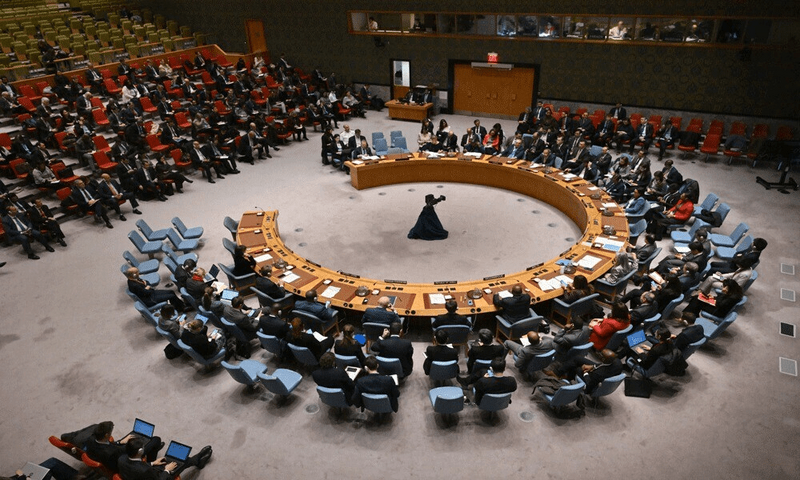
EDITORIAL: The overwhelming General Assembly endorsement of the New York Declaration may look like a breakthrough, yet it only underlines how little global consensus matters when it collides with American veto power. 142-two countries backed the resolution, just 10 opposed it and 12 abstained, but because Washington stood with Israel, the impact for Palestinians will remain symbolic.
The text is notable for what it centres and what it sidelines. It explicitly condemns the Oct 7 attacks, demands that hostages be released, calls for Hamas to disarm, and proposes that the Palestinian Authority assume responsibilities in Gaza, potentially supported by a temporary UN-mandated stabilisation mission.
In diplomatic terms, that is a rare Arab-Western alignment, with France and Saudi Arabia shepherding the effort. In operational terms, it creates no mechanism to compel compliance on the ground.
Yet Israel’s position is unchanged and openly stated. Benjamin Netanyahu has promised that “there will be no Palestinian state,” even as settlements advance and facts are created that complicate any two-state map.
When the head of government says this at a settlement expansion event, and when the principal security guarantor votes against the declaration, the gap between international consensus and outcomes on the ground is plain.
The United States insists it supports a two-state solution in principle. In practice, it opposed even this symbolic step at the General Assembly, underlining how its protective diplomatic posture enables Israel to disregard the very framework Washington claims to uphold.
The vote leaves many capitals with a clear conclusion. A supermajority can align on text, but without American alignment on implementation, momentum stalls at the level of statements.
There is another, longer arc that the declaration does not resolve. Much of the text, and much of the public debate, is now framed around Hamas. That framing is politically convenient for the Israeli government and tactically useful for states that want a ceasefire and a pathway back to the Palestinian Authority. It also risks blurring foundational final-status issues, notably the refugee question and the right of return, which lie at the heart of Palestinian claims and are indispensable to any durable settlement.
The sequence implied by the declaration may reduce violence in the short term, but it does not by itself address the claims that define legitimacy in the long term.
The history matters. Multiple credible accounts, including testimonies from former Israeli officials, record that in the late 1970s and 1980s Israeli authorities tolerated and, at times, facilitated the rise of Islamist social and political networks around Sheikh Ahmed Yassin as a counterweight to the secular PLO.
The policy was not the sole or even primary cause of what Hamas later became, but the record shows it was viewed as a useful rival to Fatah at the time, with consequences that outlived the tactic. That context is relevant when today’s diplomacy reduces the Palestinian question to the fate of one faction.
For states that supported the declaration, the case is straightforward. Two states remain the only internationally endorsed framework with any prospect of legitimacy.
The vote supplies political cover for capitals that wish to move towards recognition, as several have indicated they will. Yet recognition without enforceable steps on borders, settlements, security arrangements; Gaza’s governance and the refugee portfolio risks adding another document to an already crowded shelf.
The path from resolution to reality therefore needs time-bound, verifiable measures. If the objective is a Palestinian Authority that can credibly assume responsibilities, then access, financing and security guarantees must be defined rather than implied. If a stabilisation mission is to deploy, its mandate, duration and exit conditions must be clarified by the Security Council. If Israel is to be held to the two-state framework, there must be costs for unilateral actions that preclude it, not only statements of concern.
The General Assembly has said, again and by an overwhelming margin, what the world says it wants. For Palestinians under occupation and bombardment, that changes little unless the politics that sit above the text begin to shift.
The centre of gravity remains in a small set of capitals. Until they move from declaratory support to enforceable commitments, resolutions will keep passing, and the conflict will keep producing the same outcomes.
Copyright Business Recorder, 2025



